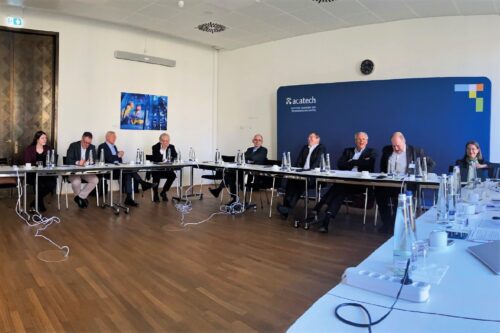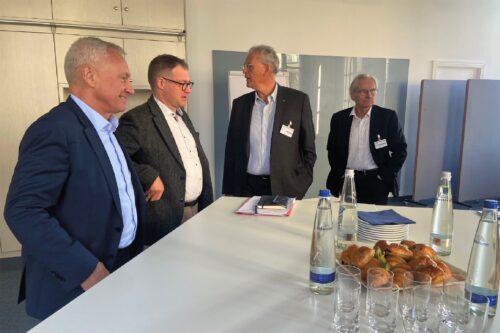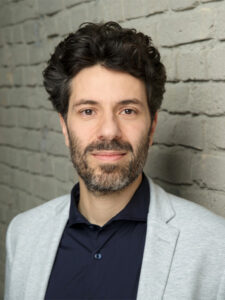acatech – National Academy of Science and Engineering and NATF – National Academy of Technologies of France step up collaboration in the areas of energy and mobility
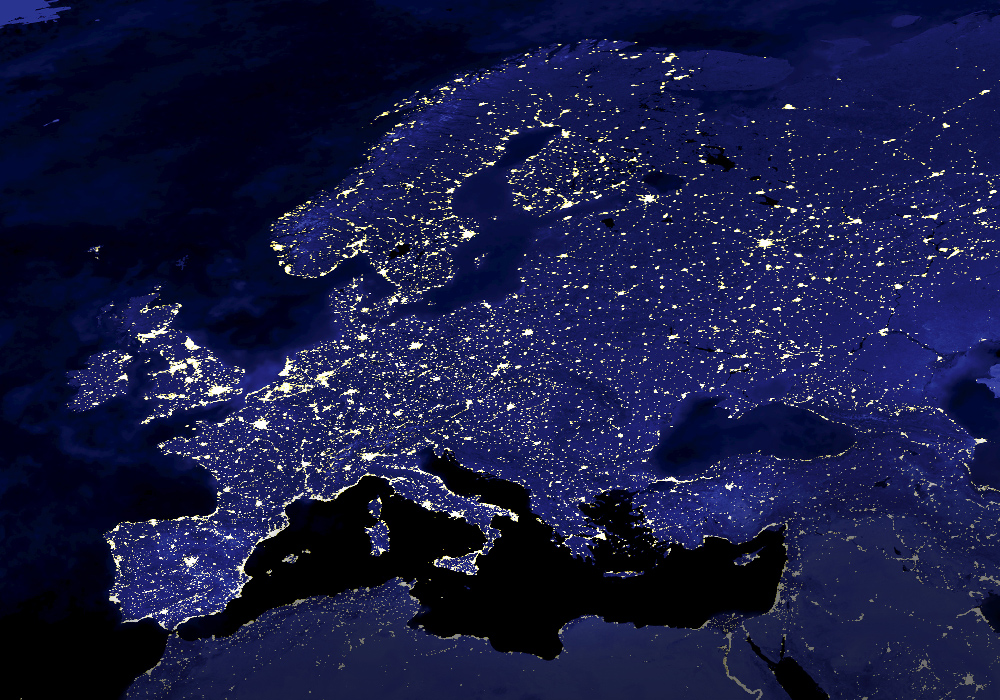
Munich, 10 February 2023
At a joint workshop on 10 February 2023 in Munich, the Presidents of the German and French National Academies Jan Wörner and Denis Ranque along with representatives of science and industry from both countries agreed a collaborative relationship targeting energy and mobility.
Agreed in principle in April 2022 in Paris, the tightening of ties between the two academies was fleshed out in a workshop on 10 February 2023 in Munich. The Presidents of the academies, acatech Executive Board member Karen Pittel, Chairman of the acatech Board of Trustees Henning Kagermann as well as experts from science and industry and the acatech Office exchanged views on the subjects of energy and mobility, and discussed the next steps.
Entitled “Use of nuclear energy: Phase-out model or viable option?”, Wolfgang Kröger, member of the Swiss Academy of Engineering Sciences SATW, gave a keynote speech on energy supply strategies in various countries, the majority of which are based on the greater use of renewable energy. However, he also brought up the problems of putting in place the necessary infrastructure and security of supply. He pointed out that there absolutely are “nuclear newcomer countries”, who intend to adopt nuclear energy using new technologies, and there are also countries who are rethinking their supply strategies. In his speech “Shaping the Future of Mobility in a Technology-open Manner”, Henning Kagermann outlined the current challenges in mobility and emphasised the importance of integrated approaches in order to consider the mobility ecosystem as a whole.
In-depth group discussions on the subjects of energy and mobility followed.
The energy group, led by Jan Wörner, intends to draw up a statement on European energy policy, covering the common objectives and priorities of European energy policy, such as climate neutrality, security of supply, affordability and strategic sovereignty. The statement will also describe the current situation and touch on the geopolitical implications, including, as a current example, the repercussions of the Ukraine war and the tensions with China over economic policy. The joint statement will conclude with an exposition of the principles by which the common objectives may be achieved.
Led by Denis Ranque, the experts in the mobility group discussed the opportunities and challenges presented by the transformation of the mobility system. To achieve climate change targets, the focus is mainly on decarbonisation using alternative drives and fuels. In this context, it will be important to increase sector coupling between the mobility and energy sectors in order to meet future energy needs and facilitate the establishment of extensive, adequate and customer-friendly charging and refuelling infrastructure. In addition, the members of the group saw great potential in the future application of networked and autonomous driving as well as in the further development of digital applications to promote intermodality and shared mobility. The participants reiterated their intention to intensify bilateral sharing between the academies and to develop potential common positions in relation to European topics.
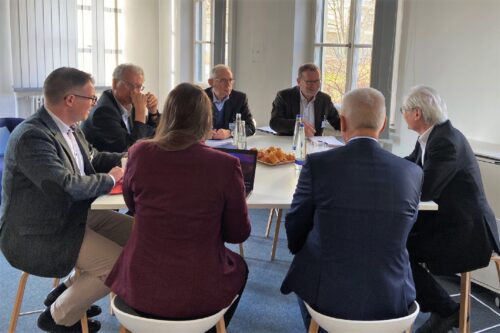
Denis Ranque, President of NATF, emphasised in his closing words that the collaboration with acatech is immensely important. Jan Wörner sees this collaborative relationship as having added value for European energy and mobility policy, and is looking forward to the two academies working together in the future.


